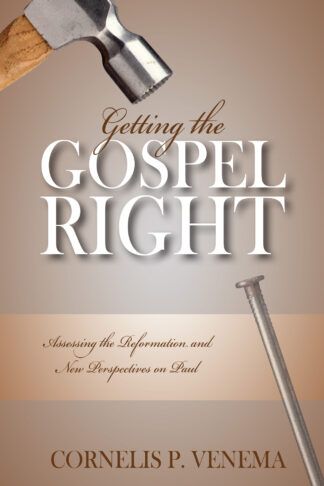Reweaving the Culture?
‘He who believes in the Son has eternal life; but he who does not obey the Son will not see life, but the wrath of God abides in him.’
— John 3:36
Have you noticed the many sermons, the many books and blogs telling the church of Jesus that our purpose is to reweave the culture? Behind these statements is the idea that our world, as we know, is permanent. While they readily admit the world’s fallen state, they still say the church’s role is to labor for the redemption of culture. That is, we are to make this world a better place. This is to come they say, by practising social justice, racial reconciliation through progressive, statist, identity politics. To be fair, some who are teaching this also speak of the importance of evangelism, but they nonetheless are urging a two-fold kingdom initiative. More specifically, they are urging us, as the church of Jesus, to seek justice, reconciliation, and reparations for victims of violence, oppression, or racism; to preserve God’s creation through Green energy initiatives; to transform social and cultural systems, and to labor for the removal of what they call systemic racism and oppression of minorities.
I have wondered for some time why the retreat from direct, intentional evangelism by so many in the western church. There is no doubt that the Scriptures speak of the necessity of justice, feeding the hungry, and caring for the widow and the orphan. We are not to retreat from the world. We are to be engaged in our community. Jesus told us that we are the salt of the earth (salt slows down putrefaction) and the light of the world (bringing the light of truth into a darkened world). The question, however, is to what degree should the church be involved in these issues? Are these the stated purpose of the church?
In the First Great Awakening the preaching of George Whitefield, Jonathan Edwards, and so many others focused on the new birth. Whitefield established Bethesda in Savannah, Georgia, as an orphanage (which is still in existence to this day) but this work never consumed him. It was always ‘downstream’ from his evangelistic preaching. Things began to change, however, during the Second Great Awakening when Arminianism largely replaced Calvinism as the theology fuelling the movement. A weakened view of God, coupled with a more exalted view of man, eventually did its work to undermine the work of the gospel. How so? In Arminianism, the view is that the unsaved man ‘holds the Ace card,’ that he decides whether or not he will follow Jesus. When this thinking takes control of the preaching, it is not long before the preacher says what he thinks his audience wants to hear in order to get a decision for Christ. This ‘kinder, gentler’ gospel, coupled with the liberal theology of German theologian Albrecht Ritschl,1 ushered in the notion that the kingdom of God is brought in by social action. It is easy, for example, to speak out against racism. That’s a no brainer. But to say that people are hell bound sinners does not pay well in our western, secularized, all inclusive culture. This is why, for example, Henry Ward Beecher at his Plymouth Congregational Church in Brooklyn, furnished his ‘Beecher’s Bibles,’ Sharps rifles for those in Kansas fighting against the institution of slavery in that state.2
Now fast forward to the 1950’s and the establishment of Christianity Today magazine. Christian Smith points out that the intention of Billy Graham, Carl F. H. Henry, Edward Carnell, Harold J. Okenga (founders of Fuller Theological Seminary), et al was to preach a scholarly, conservative, Bible believing message in the work of evangelism and discipleship, but to couple that with a liberal political perspective in the magazine. Pick up any copy of Christianity Today and you will see that this liberal political and social perspective continues today, alive and well.
So, What is the purpose of the church? Of course we are to be concerned about the poor and needy. Of course we are to seek justice in the land. These are what individual Christians are to do as the salt of the earth and the light of the world. Paradoxically, as David Wells has noted, ‘Churches that actually do not offer what can already be had on secular terms in the culture. They are an alternative to it.’3
In answering the question, what is the purpose of the church, we should not ask, ‘What would Jesus do?’, but rather, ‘What did Jesus do?’ Is there any indication that Jesus worked to remove injustice, to eradicate the slavery of the day, to stop the Roman practice of killing young children? Did Jesus institute a massive ‘Feed the Hungry’ program? Did Jesus heal everyone with whom he had contact? He did feed the 5000 and he did heal some people of diseases but why? His compassion was a sign of his Messiahship. He came, he said, to seek and save that which was lost (Luke 19:10). Jesus commissioned his disciples to make disciples of all the nations (Matthew 28: 18-20). He told them to preach repentance for the forgiveness of sins to all the nations (Luke 24:47). There is not a word demanding the Roman Empire abolish slavery, oppression, poverty, or injustice of any kind.
What did his apostles do? Did they labor to eradicate the injustices they saw in the world? Paul did not rebuke slaveholders. Instead he told them how to treat their slaves. He did not incite slaves to rise up against their masters. Instead he taught them how to submit to them. Paul did not rebuke Philemon for having Onesimus as a slave. Rather he told him to take him back. And yes, the apostles addressed the issue of discrimination against the Hellenistic Jewish widows, but did so by appointing deacons to address this physical need in the church, reminding the church that their responsibility was prayer and the ministry of the word.
So, bottom line: the church of Jesus has one task, not two. It is not to reweave or redeem the culture. This world and the various cultures will be destroyed (2 Peter 3:10). Our task, given to us by the glorified and resurrected Christ, is to disciple all the nations. We do so by going to the lost, by directly evangelizing them, and by teaching them to obey all that Jesus and his apostles and prophets have taught us. Individual Christians, living out their faith in the world, are to be salt and light. As we move into the world with the tsunami of Biblical truth, we are to do what we can to alleviate the problems we find in the world. But even then the driving force must be the evangelization of the nations to the praise and glory of God’s grace.
Think of it this way, anyone can work for justice and feed the poor, but only the Christian has the bread of life. To spend our time and resources on seeking to redeem or reweave our culture is like embalming fluid. A corpse can temporarily be made to look good by the injection of embalming fluid, but it only slows down the inevitable putrefaction which comes to everything dead. We will always have the poor with us. We will always have injustice until the Lord Jesus returns and ushers in the new heaven and earth. Only two things last forever, the word of God and the souls of men. Therefore we are to invest our lives in these two things. There are only two destinations for everyone. Jesus said that to believe on him means eternal life. To not obey him means that the wrath of God is on him, now and forever. Justice, racial reconciliation, feeding the hungry, while all commendable pursuits, will save no one. A well fed person living in peace with others, who remains in his lost state, will surely suffer an eternal hell away from the presence of the Lord and his glory.
Let’s get back to the main thing.
Al Baker is an Evangelistic Revival Preacher with Presbyterian Evangelistic Fellowship and can be contacted at al.baker1952@gmail.com
Notes
- Ritschl, born in 1822 and died in 1889, rejected the doctrine of original sin, the virgin birth of Christ, the Trinity, and the incarnation of Christ.
- The February 8, 1856 edition of the New York Tribune write, ‘He (Henry Ward Beecher) believed that the Sharps Rifle was s truly moral agency, and that there was more moral power in one of those instruments, so far as the slaveholders of Kansas were concerned, than in a hundred Bibles.’ (wikipedia.org, ‘Beecher’s Bibles)
- Cited in Gospel Masquerade, The Social Gospel, Part Two, February 26, 2013.
Of Further Interest

Getting the Gospel Right
Assessing the Reformation and New Perspectives on Paul
Description
‘He who believes in the Son has eternal life; but he who does not obey the Son will not see life, but the wrath of God abides in him.’ — John 3:36 Have you noticed the many sermons, the many books and blogs telling the church of Jesus that our purpose is to reweave the […]

God-Centred Evangelism
A Presentation of the Scriptural Theology of Evangelism
Description
‘He who believes in the Son has eternal life; but he who does not obey the Son will not see life, but the wrath of God abides in him.’ — John 3:36 Have you noticed the many sermons, the many books and blogs telling the church of Jesus that our purpose is to reweave the […]
Latest Articles
On the Trail of the Covenanters February 12, 2026
The first two episodes of The Covenanter Story are now available. In an article that first appeared in the February edition of the Banner magazine, Joshua Kellard relates why the witness of the Scottish Covenanters is worthy of the earnest attention of evangelical Christians today. In late November of last year, on the hills above […]
A Martyr’s Last Letter to His Wife February 11, 2026
In the first video of The Covenanter Story, which releases tomorrow, we tell the story of James Guthrie, the first great martyr of the Covenant. On June 1, the day he was executed for high treason, he coursed the following farewell letter to his wife: “My heart,— Being within a few hours to lay down […]
